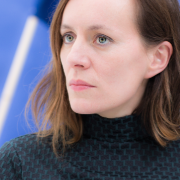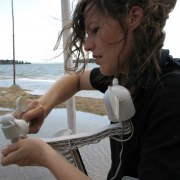Over the past years different scientific labs and research institutions have nurtured novel models of dialogue and cooperation between scientists and artists. Likewise, museums and cultural centres have been increasingly incorporating art and science explorations into their programmes. Today it is obvious that scientific engagement with cultural practices acts as a fundamental drive to enrich and diversify novel scenarios for knowledge exchange in contemporary culture. In this session participants will be invited to explore and discuss strategies of art alongside strategies of science to allow a meaningful exchange in different contexts, from the lab, to the museum, to the studio.
Facilitator
Head of Arts at CERN
Geneva
Switzerland
Session speakers
Senior Research Physicist
Michael Doser is a particle physicist working at CERN who has been working with antimatter both as a tool and as an object of study, with the goal of understanding the first moments of the Universe and of searching for unexpected surprises, for example in antimatter’s gravitational behavior. The concept of antimatter, the questions being probed with it, but also the techniques used to visualize and study it, have led to many interactions with artists, ranging from dance via sound to photography.
Artist
FFUR / Institute for Art and subjective Science
Berlin
Germany
Agnes Meyer-Brandis is an artist based in Berlin whose artistic process exists across myth making and fiction, scientific research and public platforms that invite the public to open discussion about what exploration of new worlds means, whether these new worlds are on Earth or underground. She is currently artist-in-residence at the Max Planck Institute in Golm, Germany.
Artistic Director/CEO
Arts Catalyst
Nicola will discuss an ongoing Arts Catalyst/Northumbria University research project, The Live Creature and Ethereal Things, that has brought together cosmologists and particle physicists with artists to address the question of how to bring fundamental physics into the human experience - how to understand and make big science “intimate”, to use the phrase of astronomer Roger Malina - and the role that contemporary art can play in this. Nicola is the founder and Artistic Director/CEO of Arts Catalyst in London, and Principal Research Fellow in Interdisciplinary Art and Science at the University of Westminster.



